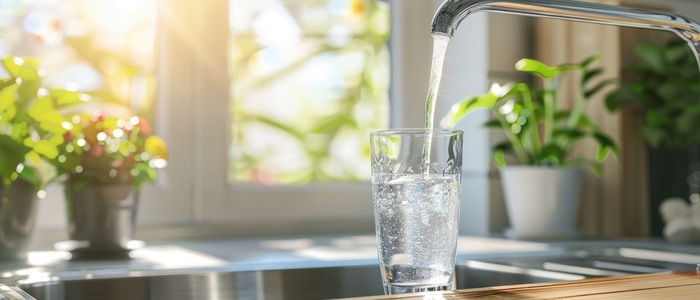The type of water running through your pipes has a significant impact on your laundry. It directly affects the appearance and wear of clothes and the lifespan of your washing machine. In addition, hard water increases the difficulty of the washing process and can have significant effects on chemicals used to wash. Read on to learn about the effects of hard water on your clothes and washing machine.
Impact on Clothes
Hard water can affect your clothes in many negative ways, including the following:
Dingy Clothes
Soaps and detergents don’t lather well in hard water. The dissolved minerals, such as magnesium and calcium, prevent the detergent/soap and water from forming a solution. As a result, scum gets deposited on the clothes, making the clothes feel unclean. You may need to redo the laundry at times if the scum patches are too big.
When you wear clothes with scum deposits, they attract and hold more dirt. It could be dust from the surroundings or your body. For example, sweat and sebum tend to stick to clothes with residues, making you feel uncomfortable. Hard water consequently affects your daily life by making your clothes unwearable or look bad in a short amount of time. This outcome can affect your social and work life.
Discoloration
The iron in hard water deposits red or brown stains on your clothes. If you use chlorine to bleach your clothes, it increases the likelihood of getting stains because bleach and iron combine to form iron oxide (rust).
Instead of lifting them off, extra minerals trap detergents within the fibers of your fabric. Detergent residues leave gray or white streaks on colored clothes and turn white clothes to cream or yellow.
Hardness and Weakened Fibers
Hard water makes fluffy clothes such as towels, shirts, and sheets feel hard against your skin. They also become hard to wash in the future as every wash traps in more minerals, making it difficult for soap to penetrate.
Clothes washed in hard water wear out faster than those washed in soft water. This development is because hard water makes clothes more brittle and stiffer, increasing friction and wear. Furthermore, hard water causes thinning and holes in the fabric.
Impact on Washing Machines
Hard water can also have a negative effect on your washing machine. Read on to learn a few of the ways hard water damages your washing machine.
Limescale
Scale build-up reduces the efficiency and performance of your washing machine. Parts such as the washing tub, lint screen, and pump accumulate build-up as time goes by. The minerals stick, causing the machine to take longer than usual to wash. Furthermore, the mechanical system clogs and wears out quickly.
Limescale can also coat the heating element of your washing machine. With time, the build-up can cause it to fail or become more expensive to run. If the build-up remains unsolved for long, it can cause other internal parts to fail as well.
Decreased Efficiency
Hard water dramatically reduces the efficiency of washing machines. Many manufacturers recommend that you use treated water to ensure excellent performance. Your washing machine is less likely to retain the factory efficiency rating for a long time. In addition, if you have a high-efficiency washing machine, you will get a different energy efficiency from what you would get with a water softener.
You may not worry much about hard water until it forces you to make substantial repairs or replace your washing machine. Whereas there are products meant to reduce the effects of hard water, they are only temporary solutions. It would be of great help if you had a permanent solution, which means a constant supply of soft water to your home.
Soft water is suitable for laundry. Water softeners deactivate the minerals that cause the problems discussed above. To get the best water treatment for long-lasting fabric and machines, contact Rainsoft and A&B Marketing today.







